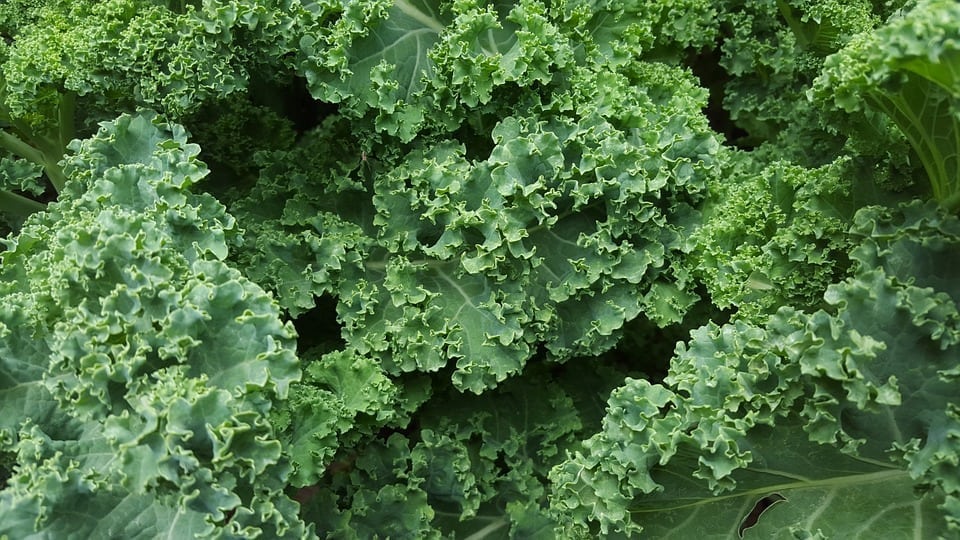Vitamin K is a vital nutrient responsible for blood clotting. It is also useful in promoting healthy bones and is necessary for keeping bones strong and decreasing chance of fractures later in life. Vitamin K is not the same thing as potassium, though the symbol for potassium on the periodic table is the letter ‘K.’
 We get this vitamin from the food we eat and from vitamin K-producing bacteria in our gut. It is found leafy green vegetables (spinach, kale), cabbage, broccoli, asparagus, cauliflower, eggs, and certain meats, like fish and liver meat.
We get this vitamin from the food we eat and from vitamin K-producing bacteria in our gut. It is found leafy green vegetables (spinach, kale), cabbage, broccoli, asparagus, cauliflower, eggs, and certain meats, like fish and liver meat.
Vitamin K is a fat-soluble vitamin. Fat-soluble vitamins, like A, D, E, and K, are stored in fatty tissues and in the liver. They are used as your body needs them and otherwise remain stored. Large quantities of fat-soluble vitamins tend to be more toxic because your body stores them, rather than pees them out. For more information on water-soluble vitamins, fat-soluble vitamins, or minerals, visit our Vitamins and Deficiencies blog.
Vitamin K Deficiency
The AAP does not recommend that children consume vitamin K supplementation if they eat a healthy diet. Deficiency is rare in children, though if your child is deficient in vitamin K, they should consume more foods that contain this vital nutrient, instead of taking supplements. Those that do become deficient typically take medications that reduce vitamin K production and/or absorption.
Though rare, deficiency is most common in infants. Newborns are often given vitamin K post-birth in order to prevent hemorrhagic diseases. Deficiency in this vitamin is a common cause of excessive bleeding in newborns. According to the American Academy of Pediatrics, late-onset vitamin K deficiency (ages 2-6 months) is reportedly 81 times higher in infants who didn’t receive vitamin K post-birth.
Deficiency Symptoms
- Excessive bleeding
- Easy bruising
- Dark black, tar-like stool
- Small blood clots under nails
Newborn Deficiency Symptoms
- Bleeding in or around skin, nose, GI tract, or elsewhere
- Umbilical cord removal site bleeding
- Bleeding at circumcision sites
- Sudden brain bleeds
Brain bleeds are considered to be severe and may be life-threatening. Seek immediate emergency care if you think your infant has a brain bleed.
Finally, if you think your child may be deficient in vitamin K, contact your pediatric healthcare practitioner. A lab test can be conducted to determine vitamin levels.
Vitamin K Toxicity
Toxicity is usually due to supplementation, in this case. Synthetic supplementation can interfere with antioxidant function, which can cause liver toxicity, jaundice, and anemia. Otherwise, toxicity is uncommon.
Toxicity Symptoms
- Skin rash
- Itchiness
- Redness
- Liver issues
Toxicity in children is usually due to kids consuming a high dose of vitamin K supplements.
Keep all adult medications and vitamins far out of reach of children. Do not leave pill bottles out or open, and store them way above kids’ reach. Additionally, kid vitamins are much harder to overdose on and are less likely to cause damage than adult vitamins.
Furthermore, it is important to remember that diet supplements are not tested and regulated like prescription drug products. Problems with safety, contamination, and quality are common with these products, even if purchased from a reliable source. Visit the Growing Healthy Together Fullscript page for a look at the vitamin and mineral supplements that we prefer.
Vitamins
Finally, it can be hard to include the right balance of vitamins your kids need through food alone. Therefore, it’s always important to provide good, balanced meals for your little ones. Because of dietary differences, families who are vegetarian or vegan may need to rely on supplements for some of the vitamins found in meat and/or dairy. Additionally, if your child has bad eating habits, they may require supplements.
For those interested in the minimum RDA (Recommended Dietary Allowances), refer to the National Institutes of Health Nutrient Recommendations.
Also, if you are unsure about your vitamin/mineral levels, a lab test can identify if you or your child are deficient. If you choose to provide nutrients in the form of supplements, it is still important to maintain good health in other ways. And, as always, keep all supplements out of the reach of children.
And for a more in-depth look at deficiency and toxicity, check back in on our blog series, including the following:
- Vitamin A
- B Vitamins
- Vitamin C
- Calcium and Vitamin D
- Vitamin E
- Iodine
- Iron
- Vitamin K
- Magnesium
- Omega-3 Fatty Acids
- Zinc
Finally, for questions or concerns, please respond to this blog or contact us.




